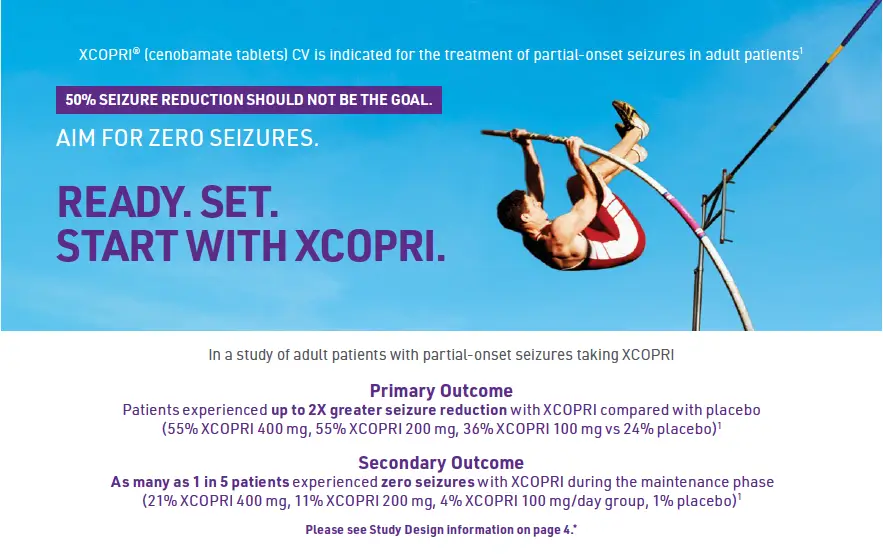DOWNLOADABLE PDFs
XCOPRI resources for you and your patients
DOWNLOADABLE TOOLS FOR HCPs
XCOPRI efficacy and prescribing overview
Summarizes the efficacy data of XCOPRI. Includes an example prescription schedule, as well as guidance on how to prescribe.

Managing adjunctive use of XCOPRI flashcard
Highlights important information for getting patients started on XCOPRI and the dose adjustments that may be needed when prescribing XCOPRI concomitantly with certain medications.

Getting patients started on XCOPRI
Designed to assist healthcare professional office staff in initiating patients on XCOPRI. This resource provides comprehensive guidance on XCOPRI cost and coverage, prescribing information, and insights into the extensive support programs for both office staff and patients.

Get your patients started on XCOPRI today
TOOLS TO SHARE WITH YOUR PATIENTS
Patient brochure
This brochure helps your patients understand what to expect from treatment. Includes information on how to take XCOPRI, potential side effects, and a patient-friendly version of the data from the clinical trials.

Caregiver brochure
Caregivers play an important role in the fight against partial-onset seizures. This brochure helps caregivers understand how to take care of themselves while also taking care of their loved one.

S.T.E.P.S.—a discussion guide
for patients with epilepsy
Standing for Seizures, Treatments, Emotional Impact, Personal Goals, and Safety—the Discussion Guide was designed to help foster a stronger relationship between patients and their care teams, and help those affected by epilepsy reach their goals.
The guide is based on a national survey that compiled responses from 400 adult patients, 201 caregivers, and 258 healthcare providers to help better understand the current state of epilepsy in the US.

Trial offer: Introduce your eligible patients to XCOPRI for free
